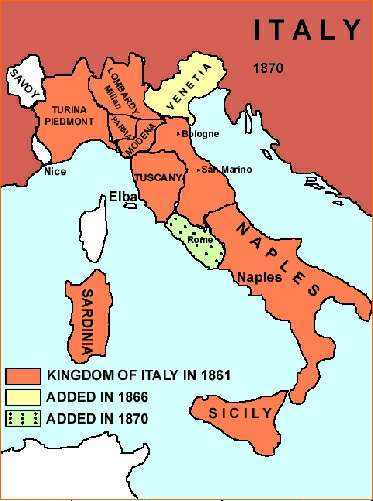
Exhibit 4.2
Guiseppe Garibaldi
Garibaldi got himself introduced to Mazzini, and became a member of ’Young Italy,’ an organization of unificationist men. He participated in the civil wars of America, and acquired proficiency in guerilla warfare. The Unification of Central Italy and the abolition of the smaller states was what he advocated. The victory of Umbria, Marches and Venetia and the annexation of Rome to Italy, fulfilled the dream of these patriots during their struggle. And the law of Guarantees was even made in the parliament of Italy in 1896 which proved contrary to the interest of the Pope.
4.2b The Stages and Steps leading to Unification
Step one: Cavour, after enticing France, declared war against Austria. After the defeat at Magenta and Salfarino, Lombardy was captured.
Step two: It was decided to merge the central states of Italy with Piedmont through the process of plebiscite. Even though Austria opposed the move it could not do anything as Cavour had already won the confidence of France.
Step three: Garibaldi captured Naples and Sicily as a revolt broke out there (1860) against the autocratic rule of Francis II of Naples. Later he also captured Umbria and Marches. The merger of these states also took place with Piedmont after a plebiscite.
By now the entire unification had taken place except for that of Rome and Venetia.
Step four: A dreadful war broke out between Prussia and Austria in 1866. Bismarck, the Chancellor of Prussia, promised Victor Emmanuel, the first king of united Italy from 1861 that if he invaded Venetia, it would be given to him. As the armies of Prussia were very strong he could not face them. A treaty was then signed by Austria, according to which Emmanuel got Venetia.
Step five: After the fall of Napoleon III, Emmanuel captured Rome. With this the unification of Italy was now accomplished. Italy emerged as a new nation. In the words of Prof. Philips, "Italy as a nation is the legacy of Cavour. Others have devoted their lives to the national liberation but only he knew how to bring it into the sphere of possibility. He kept it pure of any mutinous spirit, he did it away from barren utopias, kept it clear of reckless conspiracies, steered straight between revolt and reactions and gave it an organized force, a flag, a government and foreign allies."

Exhibit 4.3
Italy after Unification
4.0 - Introduction
4.1 The Revolution of 1848
4.2 The Unification Of Italy
4.3 The Founding of the Gernam Empire
4.4 The Balkan War
4.5 The First World War
4.6 The Impact of the First World War
4.7 The Founding of the League of Nations
4.8 Points to Remember